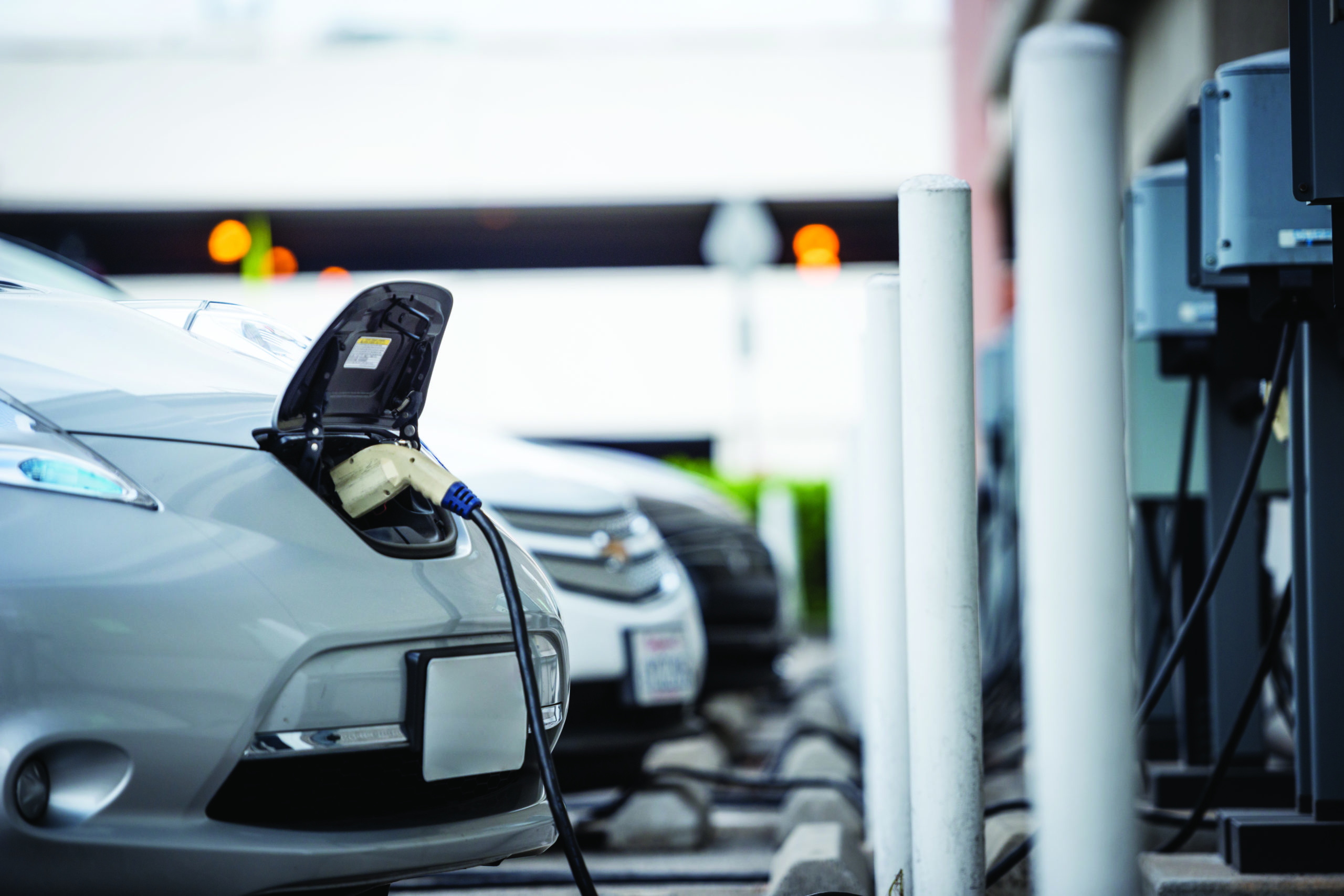30/05/2022
How Electric Vehicles Are Powering A Shift In Roadside Retail

With under eight years to go until the sale of new diesel and petrol cars is phased out, the provision of electric vehicle (EV) charging points across the UK is high on the agenda. In March the Government launched a dedicated national strategy to support the roll out of infrastructure, which aims to support the adoption of electric vehicles and the overall transition to net zero tailpipe emissions.
The property sector has already taken steps to incorporate this into future developments, with a particularly strong performance from the commercial sector. Development Manager Claudine Tracey and Construction Associate Ketan Patel explore how the forecourt and roadside retail segments have evolved in recent times to deliver for drivers, investors and the environment.
So far in 2022 we’ve seen over 77,000 BEV (battery electric vehicles) registered – 88% more than during the same period last year – and this is trend will only accelerate. In March the Government announced that it expects a minimum of 300,000 public chargers to be available by 2030. At the moment there are only 30,290 charging points across Britain, of which 5,494 were rapid chargers.
To encourage the adoption of electric vehicles – and attract additional customers – we’re increasingly seeing major brands designing new outlets with charging provision factored in.
Whilst many EV drivers are expected to rely heavily on home charging, around a third of UK households don’t have access to off-street parking. As a result, there is a real need for more, easily available, and super-fast charging points that could be provided via local charge hubs, particularly for longer trips. Forecourt operators and traditional roadside retailers are therefore increasingly standardising the provision of these whilst also delivering an expanded offering to customers. Our Stoke on Trent scheme, which features six ultra-rapid 150kw chargers alongside the nation’s favourite coffee and bakery brands, Greggs and Costa Coffee, is a great example of a well-located site that promotes EV use.
While ‘first generation’ slow chargers – 7kw, 20kw and even 50kw – are best suited for locations with a long dwell time (such as homes or offices), most commercial operators we work with nowadays prefer ultra-rapid installations, starting at a minimum of 150kw. Our aim therefore – and the aim of our customers – is to make electric car charging as convenient as filling up in order to encourage confidence in transition to electric vehicles.
The infrastructure question
In practice the most significant roadblock EV charging installations is grid capacity. Although it is improving, further investment is essential, including from Government, power generation and distribution businesses, the automotive industry and EV charging operators.
Enhancing grid capacity is the foundation of making fast charging with lower waiting times widely available nationwide. An even spread of reliable grid connectivity will support equal availability of charging points – ensuring rural communities are not left behind and the currently emerging north-south divide is not promoted further.
In commercial property terms this will also make a site’s overall assessment and development much easier and quicker, providing end users, operators and investors with more sought-after opportunities. For these reasons we’re interested in sites all over the country to make sure that everyone will be able to transition easily to EVs.
How existing sites are transforming
While demand for well-located sites continues to grow, established forecourt operators are diversifying to meet current and predicted demand from EV drivers. The leading brands are clearly reviewing their existing portfolios to assess what charging provisions can be made at existing petrol stations. For example, Shell recently unveiled its first EV Hub in Fulham where it converted all petrol and diesel pumps at an established station to nine high-powered ultra-rapid charge points.
Generally, the standard EV Forecourt requirement in the UK is between 1 and 1.5 acres – although some of our EV projects range from 0.5 and 2+ acres as operators’ requirements shift to accommodate demand. Though clearly often this depends on the macro/micro-credentials of the specific opportunities and the availability of grid capacity, the best sites are usually well located with high passing traffic counts, prominent road visibility and large population catchment areas.
At present, the average UK forecourt store ranges from 4,500 sq. ft. to 6,000 sq. ft. – but recent experience and discussions we are having with occupiers indicate that this is starting to change to much larger spaces. As customer dwell times rise, providers are focusing on delivering more EV charging points as well as a larger variety of facilities. This can include everything from co-working spaces, food and beverage offerings to eat-in, grocery shopping and even postal services. As a result, we expect that the retail store at newly developed forecourts to grow to over 10,000 sq. ft.
What makes a good site for EV Charging?
At Godwin Developments we are working with a number of major household brands and EV charging providers in order to power the UK’s low carbon future. Our partners are interested in sites close to or on major arterial routes, whether motorways, A and B roads or busy local roadways that offer the most convenience to passing motorists. As well as roadside visibility we are seeking sites with a large population catchment to be able to reach existing residents and offer EV charging and retail hubs.
We’re able to work with both greenfield and brownfield sites to bring forward EV charging provision, including those which have property on them. These highly sustainable developments offer major benefits for local authorities as many seek to meet Net Zero targets.
Have a site of 0.5+ acres close to major roads and existing settlements? Get in touch with Claudine now via [email protected] or 0121 516 9508 for an informal, confidential discussion.